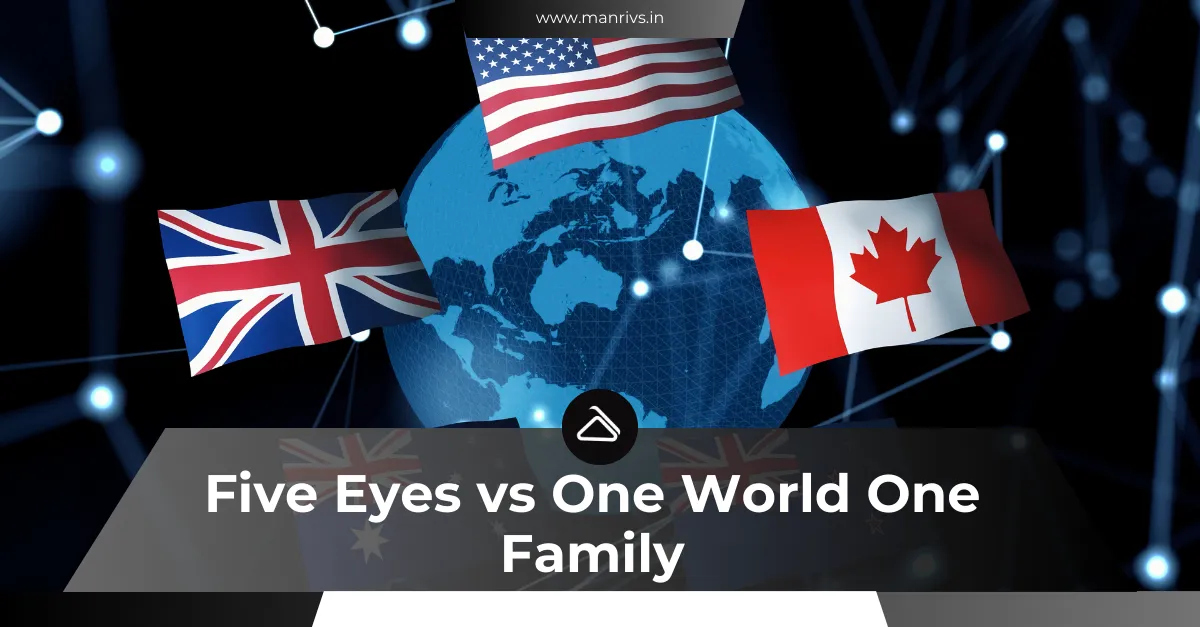In the world of international diplomacy and global alliances, India finds itself at a crossroads, caught between the powerful consortium known as the Five Eyes and its historical ties to the British Commonwealth. This article explores the complex dynamics of this situation, delving into India’s historical decisions, contemporary challenges, and the potential ramifications of its choices.
The Power of Five Eyes
The Anglosphere
The Five Eyes, comprising the United States, the United Kingdom, Canada, Australia, and New Zealand, form the core of the Anglosphere. These nations share a deep cultural heritage and wield substantial global influence. They are known for their robust economies and formidable military capabilities, making them dominant players on the world stage.
The Legacy of Imperialism
The Anglosphere Five Eyes’ historical roots lie in the era of imperialism and colonialism. While India gained independence from British colonial rule in 1947, the Anglosphere’s influence endured. The British crown continues to serve as the head of state for several countries, including Canada, Australia, and New Zealand. Shared cultural heritage binds these nations, allowing the Five Eyes to maintain their dominance in the name of values like liberty, freedom, the rule of law, and fraternity.
India’s Quest for a New World Order
Addressing Global Disparities
Addressing the 78th session of the UNGA, S. Jaishhankar has been vocal about the need for a more equitable and democratic world order. India seeks to champion diverse interests, moving away from a scenario where a select few dictate the global agenda. He linked these diverse interests to India’s G20 presidency, saying that the days when a few nations set the agenda were over.
The Challenge of Double Standards
A glaring example of the Anglosphere Five Eyes’ influence came to light during the COVID-19 pandemic. Vaccine apartheid disproportionately affected the global South, revealing the imbalance of power. This attitude persists in climate action talks at the UN and other international forums.
Unsubstantiated Allegations
The recent allegations by Canadian Prime Minister Justin Trudeau against India highlight the anglosphere’s readiness to weaponize freedom of speech, liberty, and the rule of law to serve their interests. Accusations of India’s involvement by the Five Eyes, in the assassination of a Khalistani terrorist Nijjar were made without concrete evidence.
Department of State spokesperson Matthew Miller said the US has publicly and privately urged India to cooperate in the Canadian investigation, while India conveyed in the strongest terms that Canada has never cooperated with India when it comes to its apprehensions about those with criminal cases in India finding safe haven in Canada.
India’s Commonwealth Conundrum
A Historical Perspective
India’s membership in the Commonwealth of Nations, a voluntary association of 56 independent countries, has raised questions. How did India, a newly independent nation in 1949, choose to maintain its ties with the Commonwealth, seen by some as colonial baggage?
Jawaharlal Nehru’s perspective on the Commonwealth evolved over time. Initially, there was skepticism about India’s continued membership, but Nehru believed it could bring political and economic benefits. It allowed for close ties with England, India’s largest trading partner at the time.
On 16th May 1949, Jawaharlal Nehru moved a motion in the Constituent Assembly urging the members to ratify the Indian government’s decision to maintain its association with the Commonwealth of Nations. Many assembly members, however, were not convinced. The motion was still passed, and India became a member of the British Commonwealth of Nations.
Arguments for Leaving
Today, the argument for India leaving the Commonwealth gains traction. Advocates argue that it perpetuates a colonial legacy and implies tolerance of actions contrary to India’s interests. Concerns about anti-India forces operating with impunity on Canadian and British soil add to the rationale for departure.
Minimal Practical Impact
Critics of the Commonwealth’s symbolic significance argue that India’s exit would have limited practical consequences. The organization’s primarily symbolic role means that India’s global standing and relationships with other member nations may remain intact.
The Road Ahead
India faces a pivotal choice as it navigates its relationship with the Anglosphere and its Commonwealth membership. While there are diplomatic and political implications to consider, the call for India to assert itself against violence and anti-India forces grows louder. It remains to be seen how India will respond to the challenges presented by the Five Eyes and the expectations of the global community.
Conclusion
India’s position in the world order is at a critical juncture. The tension between the Five Eyes and its ties to the Commonwealth raises fundamental questions about sovereignty, diplomacy, and the pursuit of its national interests. As India grapples with these complex issues, the global community watches closely, eager to see how the nation will shape its future.
FAQs
-
Why is the anglosphere influential?
The anglosphere, composed of powerful nations like the US, UK, Canada, Australia, and New Zealand, also known as Five Eyes wields influence due to shared cultural heritage, strong economies, and robust military capabilities.
-
What led to India’s Commonwealth membership?
India’s decision to remain in the Commonwealth after gaining independence was driven by the belief that it could bring political and economic benefits, including maintaining close ties with England.
-
What are the arguments for India leaving the Commonwealth?
Advocates argue that leaving the Commonwealth would shed colonial baggage and send a message that India does not endorse actions contrary to its interests, such as harboring anti-India forces.
-
What practical impact would India’s exit from the Commonwealth have?
Critics contend that the Commonwealth’s symbolic significance means India’s exit would have minimal practical consequences on its global relationships and standing.
-
How can India navigate its relationship with the anglosphere?
India faces the challenge of balancing its ties with the anglosphere and its commitment to its national interests. Diplomacy and decisive actions will be key in determining its path forward.

